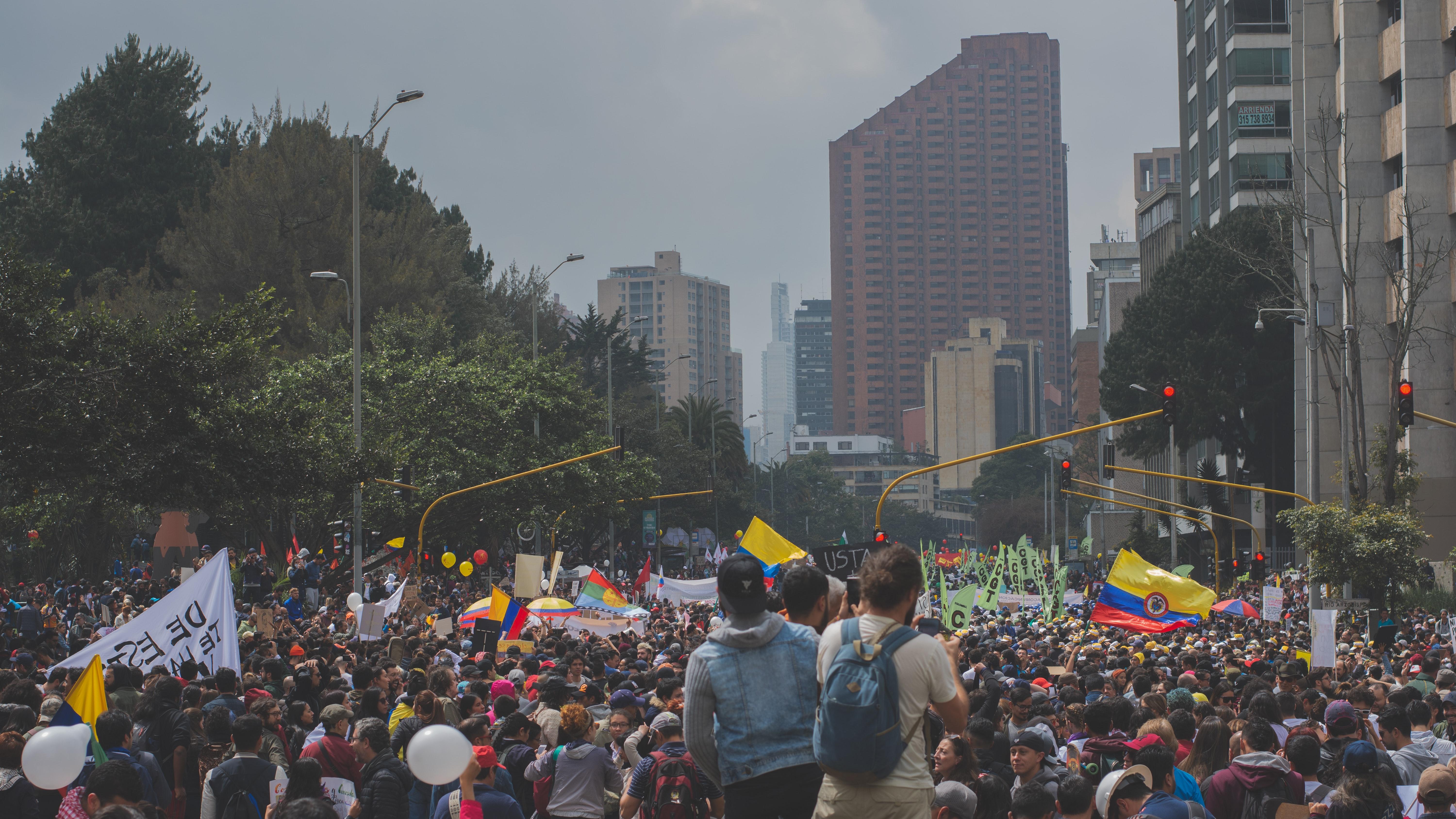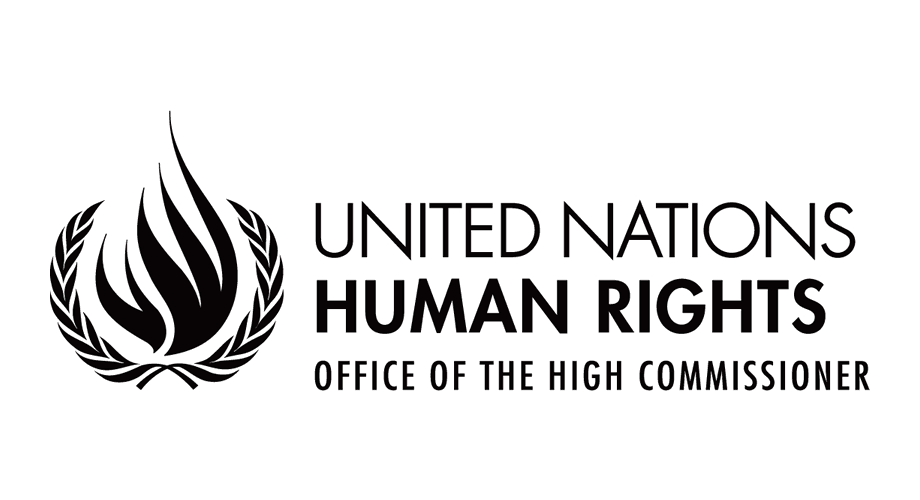- Home
- About Us
- Issues
- Countries
- Rapid Response Network
- Young Adults
- Get Involved
- Calendar
- Donate
- Blog
You are here
Afro-Descendant & Indigenous: News & Updates
RRN Letter
March 11, 2021
The Department of Antioquia was hardest hit by a wave of violence in February, due mostly to the predominance of the paramilitary group Clan del Golfo (Gulf Clan) in the region. Our letter to the president and attorney general of Colombia includes these incidents of horrific violence: a massacre of five farm workers, assassinations, threats to school teachers, and a 13-year old indigenous boy who lost his leg when he stepped on a landmine. We are urging that authorities in Colombia: (1) take all necessary steps to fully implement the 2016 Peace Accords, (2) immediately finalize the National Commission on Security Guarantees’ public policy for dismantling armed groups and their networks, and (3) strengthen the Special Investigation Unit to identify and prosecute both the material assailants and intellectual authors of attacks on human rights defenders and former combatants.
News Article
March 11, 2021
Criminal groups vying for control of illegal economies in Buenaventura, a port city on Colombia’s Pacific Coast, have long caused violence. In addition, the city’s majority Afro-Colombian population lacks access to necessities like clean water, decent jobs, and educational opportunities. Recently, residents have been raising awareness and calling for major policy changes to address both the current conflict and underlying issues.
News Article
March 11, 2021
Criminal groups vying for control of illegal economies in Buenaventura, a port city on Colombia’s Pacific Coast, have long caused violence. In addition, the city’s majority Afro-Colombian population lacks access to necessities like clean water, decent jobs, and educational opportunities. Recently, residents have been raising awareness and calling for major policy changes to address both the current conflict and underlying issues. Over the last few weeks people have organized marches and protests to demand the attention and help they need. Young people have taken an especially active role in organizing, using the hashtag #SOSBuenaventura on social media to publicize their efforts.
News Article
March 1, 2021
The Pacific port city of Buenaventura has a long history of violent conflict, which led to it being dubbed Colombia's "capital of horror". Since 1988, armed gangs have battled for territorial control of drug routes out of the port and carried out gruesome dismemberments in "casas de pique" (Spanish for chop houses). Buenaventura is now suffering a new wave of violence, and midwives like Feliciana Hurtado put themselves at risk by confronting armed fighters to help women living in violent areas deliver babies.
News Article
February 28, 2021
WOLA (Washington Office on Latin America) summarizes recent human rights cases in Colombia from the past several weeks including murders of social leaders, violence and threats towards Indigenous and Afro-Colombian elders and social leaders, violence of paramilitary towards individuals and in Indigenous territories, and continued fighting of paramilitary groups in Buenaventura, the large port city on the Pacific coast. The city’s majority Afro-Colombian population lacks access to necessities like clean water, decent jobs, and educational opportunities. Residents are calling for major policy changes to address both the current conflict and underlying issues.
News Article
February 25, 2021
Widespread violence continued to impact Colombia’s most vulnerable and marginalised communities and social groups in 2020, according to the annual report on the country by the United Nations High Commissioner for Human Rights (OHCHR). The report also found alarming levels of inequality, with women badly affected, and lack of access to essential services, with some regions lacking clean water and medical care. In many instances, the Colombian state has failed to address security and humanitarian concerns, particularly in regions long impacted by conflict, structural poverty and historic state abandonment. The global pandemic also impacted on the human rights of the population. Among its recommendations, the OHCHR prioritised full implementation of the peace agreement in addressing the endemic violence which has claimed hundreds of lives since late 2016.
Event
February 20, 2021
Show up to show Cleveland's support for the workers at Amazon (Bessemer, Alabama) who are currently voting whether to unionize. Gather at 12noon, West Blvd/Cudell Rapid Station, 10108 Detroit Ave., Cleveland 44102. March and car caravan to the new Cleveland Amazon Hub 10801 Madison Ave. Cleveland, OH 44102. These predominantly Black workers who have in recent months formed the BAmazon Workers Union, are on the cusp of launching a history-changing workers organization against one of the biggest and most powerful transnational corporations in the world. Let's show our solidarity with these workers.
News Article
February 13, 2021
Colombian President Iván Duque on February 8th decreed that all Venezuelans who arrived in the country before January 31 may receive a “Temporary Status for Venezuelan Migrants” (ETPV) allowing them to stay in the country for 10 years, to work legally, and to access health and education services, including COVID-19 vaccines. El Tiempo revealed a February 6 communication that the Cuban embassy in Colombia shared with the Colombian government, the chief of the UN Verification Mission, and two Catholic Church representatives. It reads: “Our embassy received information, whose veracity we cannot assess, about an alleged military attack by the Eastern War Front of the ELN in the coming days. We have shared this information with the ELN peace delegation in Havana, which expressed total ignorance and reiterated the guarantee that it has no involvement in the organization’s military decisions or operations.” In Buenaventura, the port that accounts for 70 percent of Colombia’s import-export activity, a paramilitary-derived gang that briefly dominated criminality in the city, “La Local,” underwent a December schism into two factions, the “Chotas” and the “Espartanos.” Daily street fighting has ensued, leaving much of the city’s 400,000 people in the crossfire. Estimates of the toll so far in 2021 range from 20 to 52 killed, and 112 to 1,700 families displaced.
News Article
February 13, 2021
In Buenaventura, the port that accounts for 70 percent of Colombia’s import-export activity, a paramilitary-derived gang that briefly dominated criminality in the city, “La Local,” underwent a December schism into two factions, the “Chotas” and the “Espartanos.” Daily street fighting has ensued, leaving much of the city’s 400,000 people in the crossfire. Estimates of the toll so far in 2021 range from 20 to 52 killed, and 112 to 1,700 families displaced.
RRN Letter
February 11, 2021
Unknown men arrived at the home Julio David González Arango and shot him. Why? Julio González is a member of a movement called the Peaceful Resistance which for the past decade has been actively organizing opposition to the environmental harms caused by the Escobal silver mine, owned by the Canada-based multinational Pan American Silver. Fortunately, Julio González survived. But the very next day, two other members of the environmental resistance movement received death threats by text message: "you will be next." IRTF wrote to authorities in Guatemala, urging that they 1) conduct a complete, independent, and impartial investigation into the assassination attempt and death threats, publish the results, and bring those responsible to justice; 2) ensure that Pan American Silver respects a 2018 order of the Constitutional Court to halt mining operations and puts a stop to all its public relations work that is increasing tension in the region and is contributing to the insecurity of the residents. IRTF is also among 195 organizations from across the Americas that signed a letter directed at the leadership of Pan American Silver.



